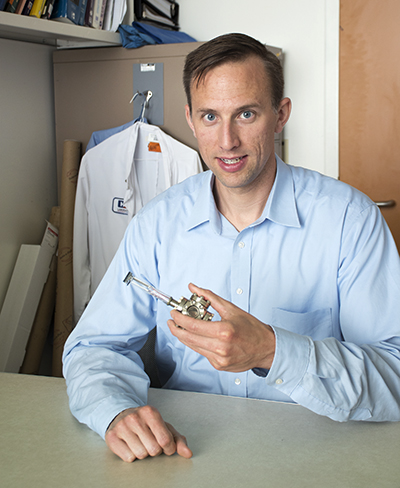Displaying news tagged: DARPA
STELLAR System Will Enable Autonomous Systems to Learn for Life

HRL Laboratories, LLC, joins DARPA’s Lifelong Learning Machines (L2M) program to develop a breakthrough in machine-learning architectures for autonomous systems that will continually improve performance and update their knowledge based on experience, without human supervision.
The ExACT Tools for Safe Autonomy

HRL Laboratories, LLC, will join the Defense Advanced Research Project Agency (DARPA) in its Autonomy Assurance (AA) program with the Expressive Assurance Case Toolkit (ExACT), a set of algorithmic tools that will mathematically verify that the autonomous driving system’s algorithms are correct and safe.
Making DREaM Come True for DARPA

HRL Laboratories, LLC, has received an award from the Defense Advanced Research Project Agency (DARPA) to develop the next generation of gallium nitride (GaN) transistors with dramatically improved linearity and noise figure at reduced power consumption for use in electronic devices that manage the electromagnetic spectrum from radio communications to radar.
Detecting Danger At A Safe Distance

HRL Laboratories, LLC, has developed a miniaturized, low-power radar array that potentially can see weapons or explosives concealed on a person at tactically safe distances.
HRL Awarded DARPA Project AMEBA to Develop Man-Portable Low-Frequency Radio Antennas

HRL Laboratories, LLC, has received an award to participate in project AMEBA, the Defense Advanced Research Project Agency (DARPA) initiative to develop low-frequency radio transmission antennas that are vastly more compact and efficient than the massive existing arrays used to communicate in traditionally radio-denied conditions, such as with submerged submarines.
HRL Researchers Develop a Low-Power Cold-Atom Source for Atomic Clocks and Physics Experiments

HRL researchers have developed a reversible alkali atom source that runs at low power and low voltage, which is beneficial in applications such as smaller, more efficient, and ultimately portable atomic clocks that use cold atoms.
HRL Laboratories Researcher Chosen for U.S. Frontiers of Engineering Symposium

HRL Senior Research Staff Engineer Florian Herrault has been chosen to participate in the National Academy of Engineering’s (NAE) 23rd annual U.S. Frontiers of Engineering (USFOE) symposium.
HRL Team Receives DARPA Award to Develop Magnetic Integrated Components

HRL Laboratories, LLC, has received an award from the Defense Advanced Research Project Agency (DARPA) under the Magnetic, Miniaturized, and Monolithically Integrated Components (M3IC) program.
HRL Receives DARPA Award for High-Efficiency E-band GaN Power Amplifier
HRL has received an award from DARPA to develop and demonstrate high-efficiency MMICs for RF bands in the 50 to 110-GHz frequency range.
Brain Meeting Presentation by HRL Shows Promise for Transcranial Stimulation During Sleep

HRL Laboratories, LLC, was represented at the 3rd Annual Brain Initiative Investigators meeting by Dr. Praveen Pilly, who presented Improving Memory Performance by Augmenting Consolidation with Transcranial Stimulation in the plenary session on “Applications of BRAIN Technologies”.